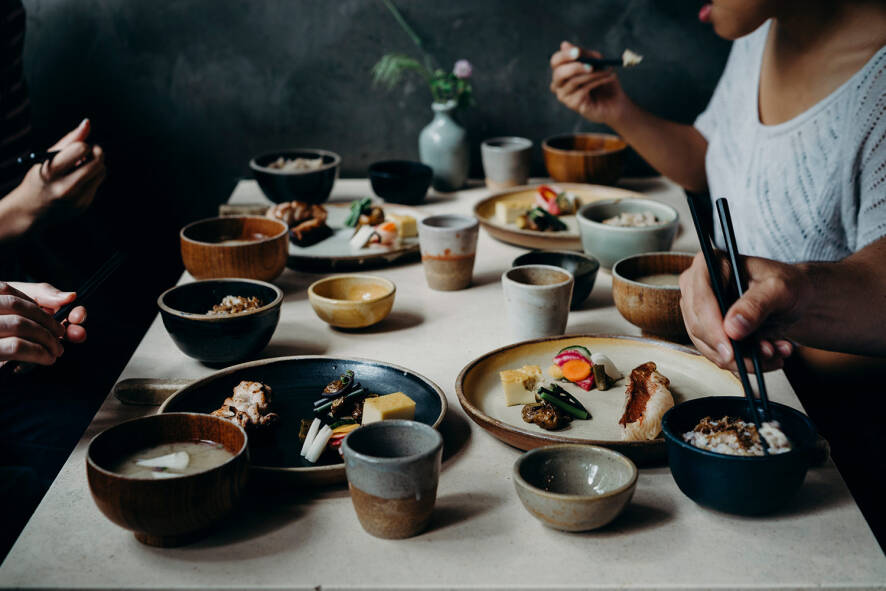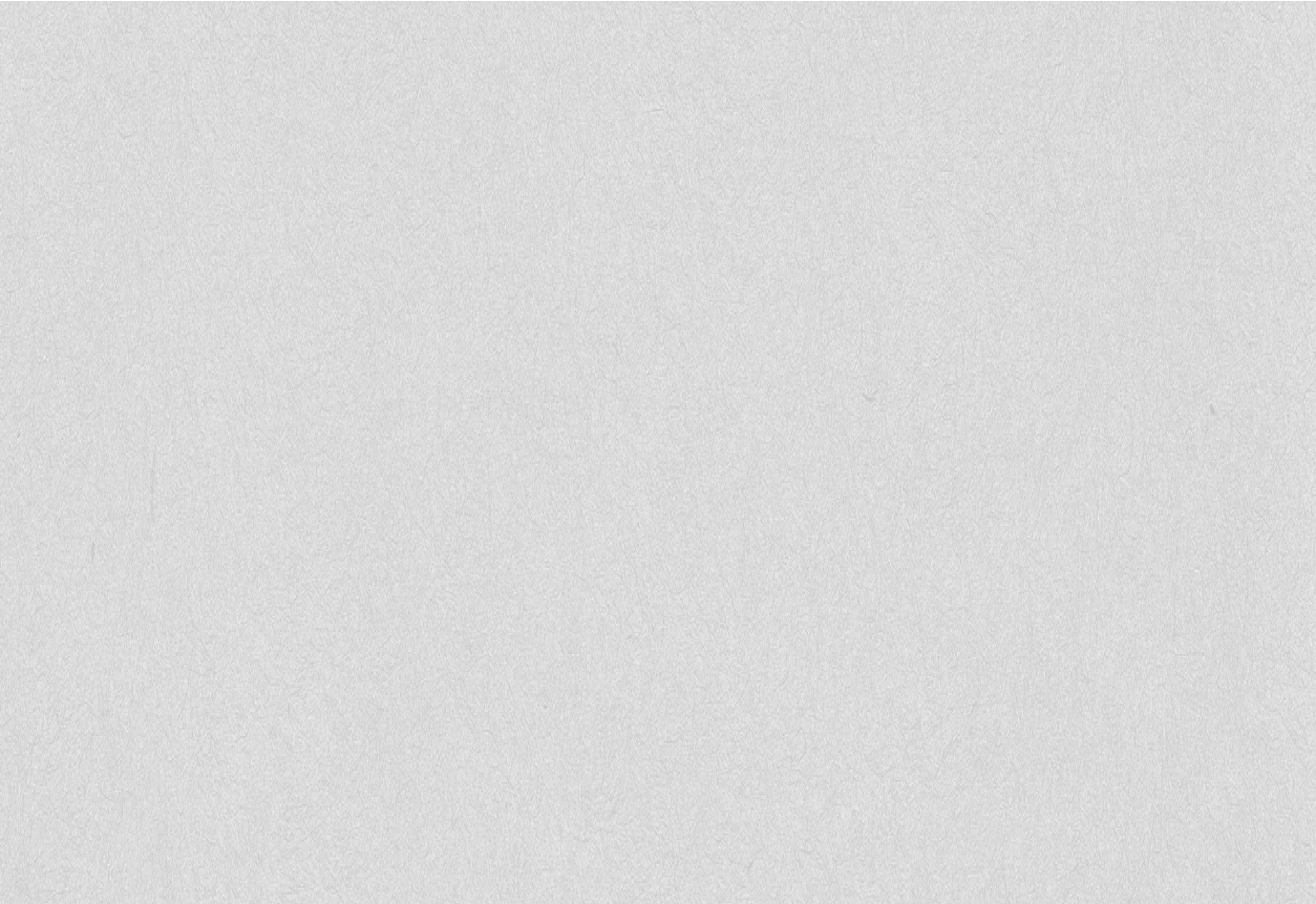Osakana
290 Graham Ave, Brooklyn, New York
osakanabk.com
Okonomi / Yuji Ramen
150 Ainslie St, Brooklyn, New York
okonomibk.com
In 2016, Yuji added a store and education center to his restaurants. At Osakana, customers have their pick of the freshest, locally caught fish, as well as access to lessons on how to make sushi, which techniques to use, and how to best use fish in their home kitchen. This is chef Yuji’s way of restoring the lost connection between the city and the ocean that touches it.

F
I
S
H
E
D
U
C
A
T
I
O
N
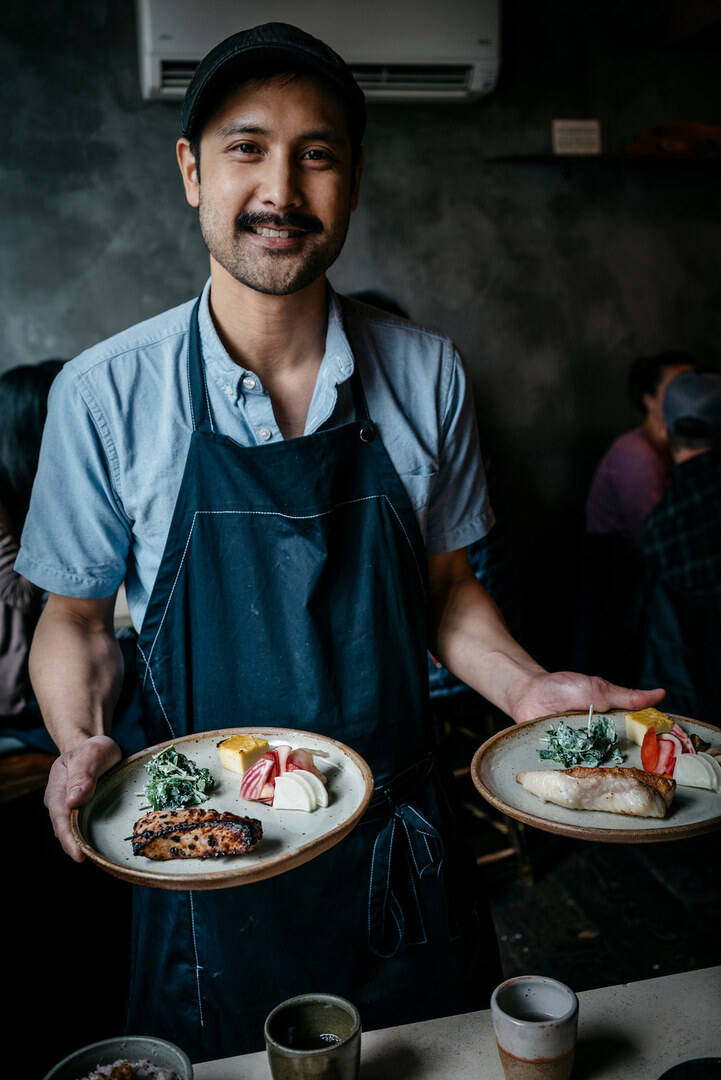
Yuji opened his own restaurant(s) Okonomi and Yuji Ramen in 2014, working only with fish from the Atlantic ocean, like sea bass, mackerel, and flounder, and produce from the local farmer’s markets. At Okonomi he serves a fixed menu according to the tradition of ichiju sansai, a foundational element of Japanese cuisine that literally means ‘one soup and three side dishes.’ Rice and miso soup are such staples.
Ten years ago, owner and chef Yuji worked as a fishmonger in the Japanese fishing industry. He is job was to distribute Japanese fish to high-end sushi restaurants in New York and Boston. It was here he first noticed a paradox in the American approach to fish: The quality and potential of locally caught, American fish was just as high as the fish from Japan, but restaurants kept insisting on the Japanese product that had to travel thousands of miles before landing on the plate. This approach was anathema to the love and care with which the Japanese fishmongers treat their products.

P
A
R
A
D
O
X
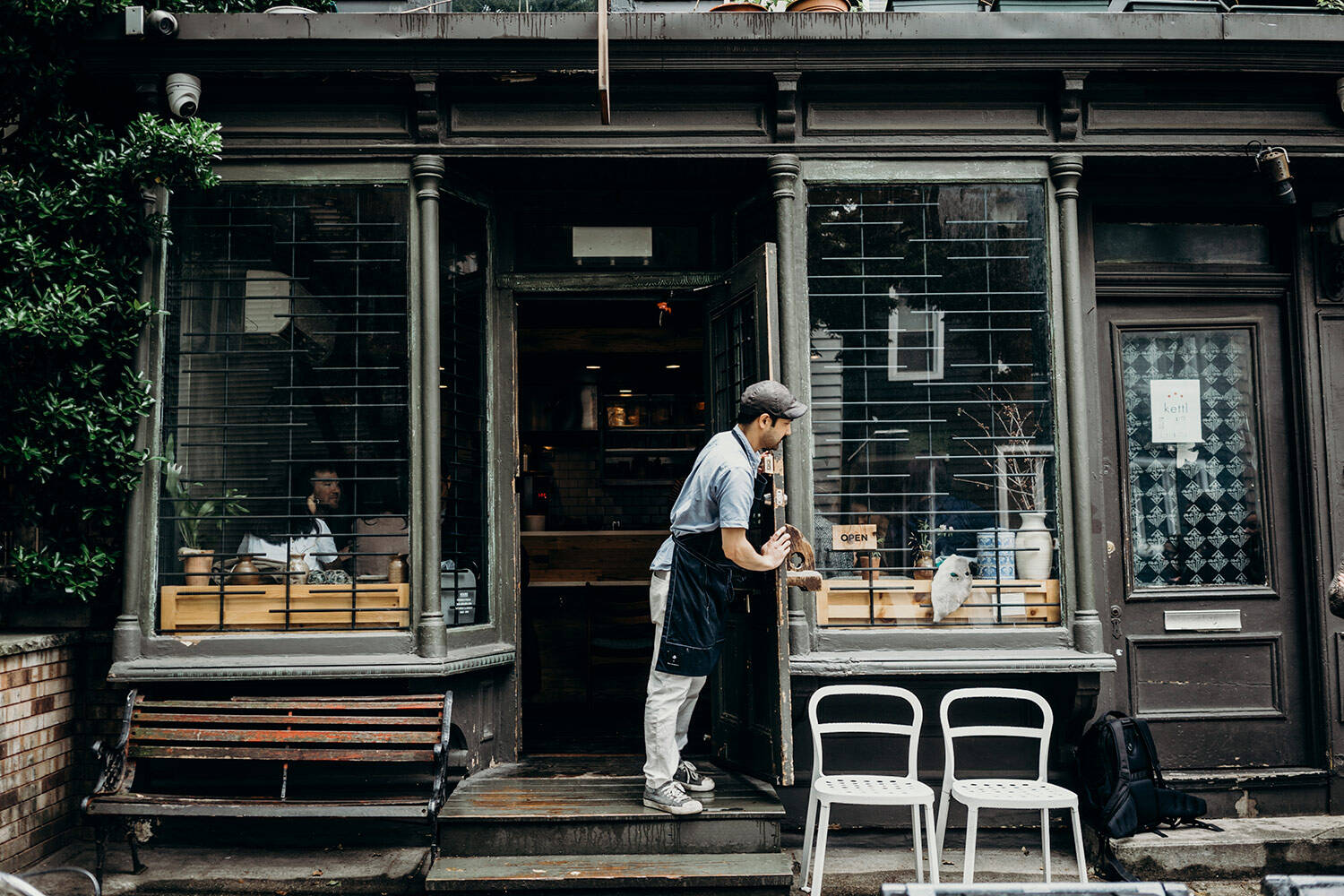


‘The quality and potential of locally caught, American fish is just as high as the fish from Japan, but restaurants kept insisting on the Japanese product that had to travel thousands of miles before landing on the plate.’
The locally caught fish served by chef Yuji is fresher than fresh. Each morning before the sun kisses the streets of New York he gets to work so he can serve the fish - along with rice and miso soup - to Okonomi’s first guests at 9 AM. At 3 PM the twelve seat shop transforms into Yuji Ramen, where what’s left of the day’s catch – like fish heads and bones – is used to make broth for steaming bowls of ramen served from 6 PM to 11 PM.
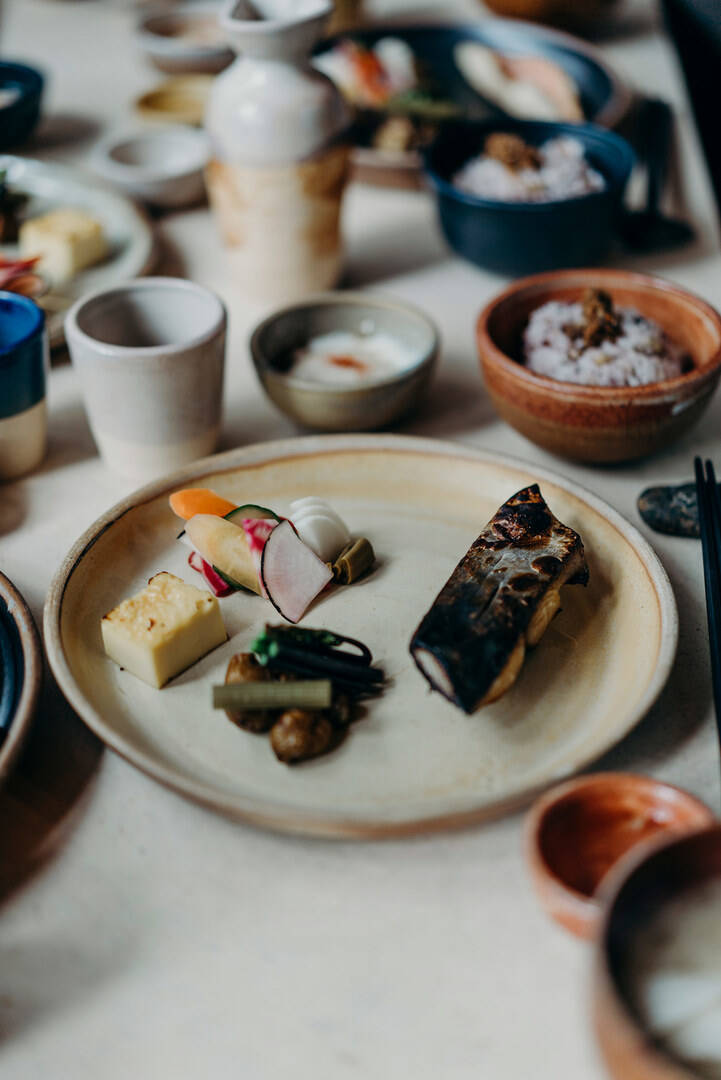
E
D
U
C
A
T
I
N
G


At Okonomi / Yuji Ramen in New York, not a single part of the fish goes to waste. Chef Yuji Haraguchi and his team embrace the ancient Buddhist philosophy of mottainai, the Japanese term which means zero waste, respecting the environment, and showing gratitude.
An ode to the mottainai philosophy
OKONOMI / YUJI RAMEN
Text, photography, and video: Chantal Arnts
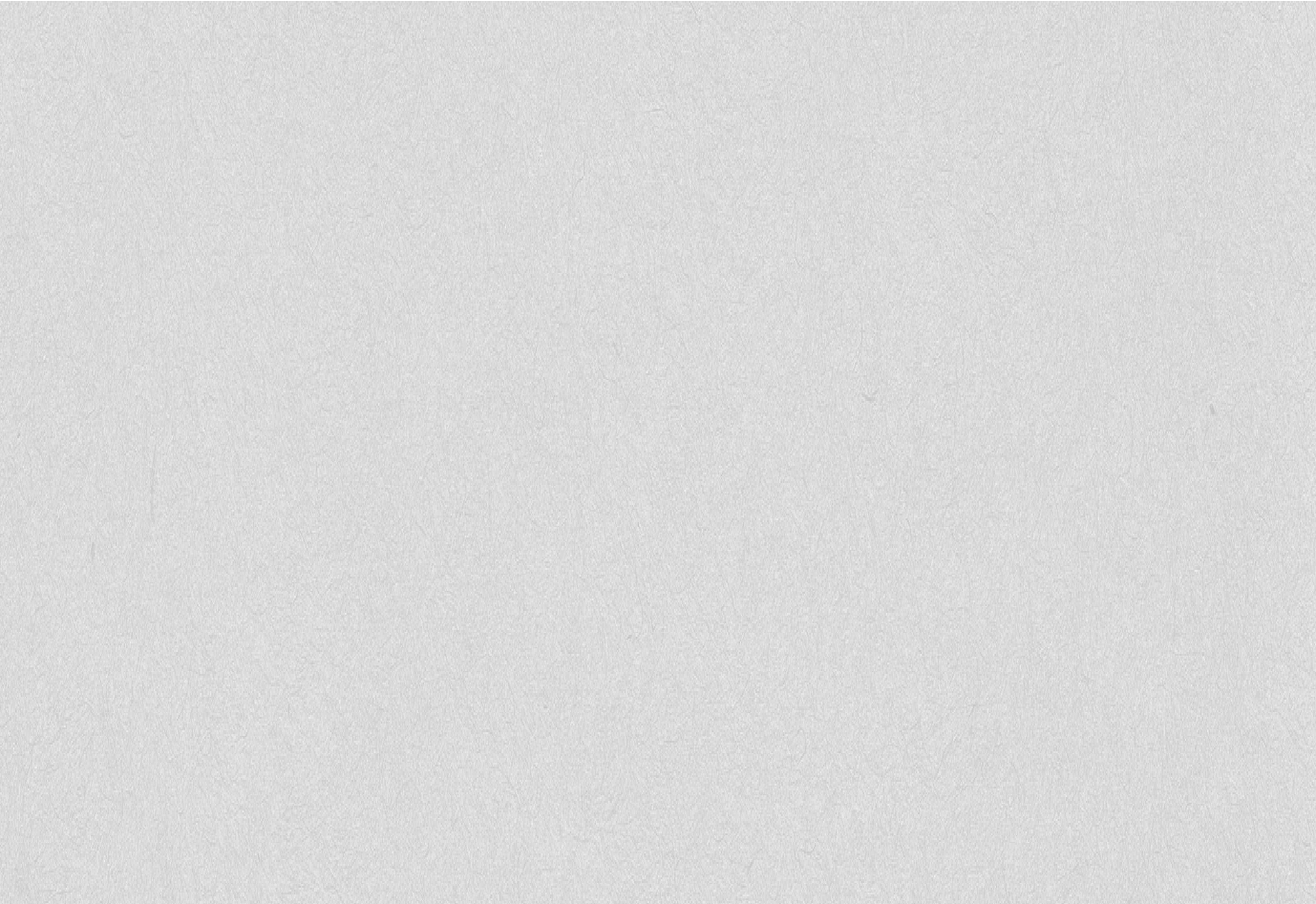
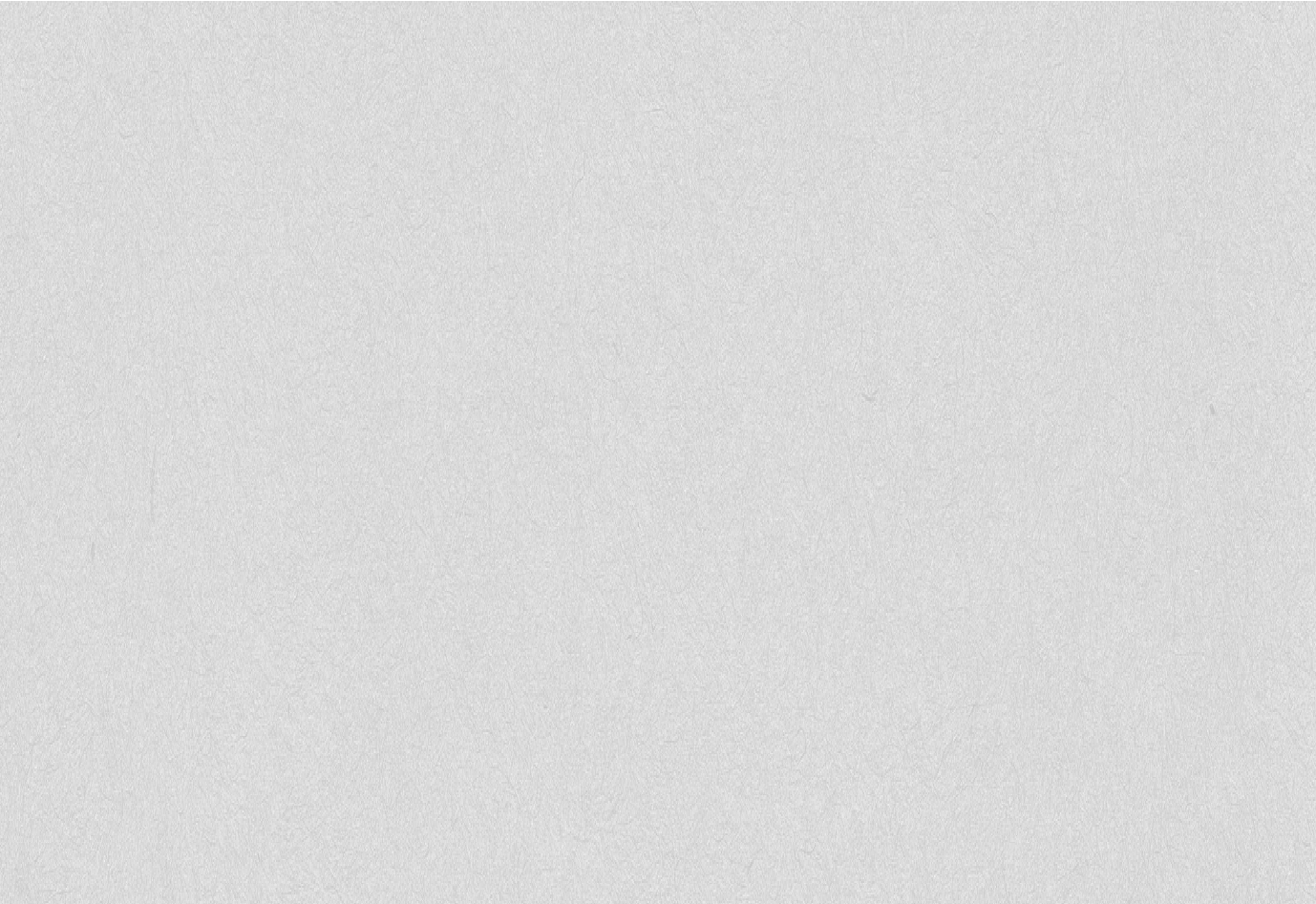





Eggs

Eggs
卵


Pickled vegetables

Pickled vegetables
漬物


Grilled fish

Grilled fish
ロースト魚


Miso soup

Miso soup
味噌汁


Wholegrain rice

Wholegrain rice
マルチグレインライス
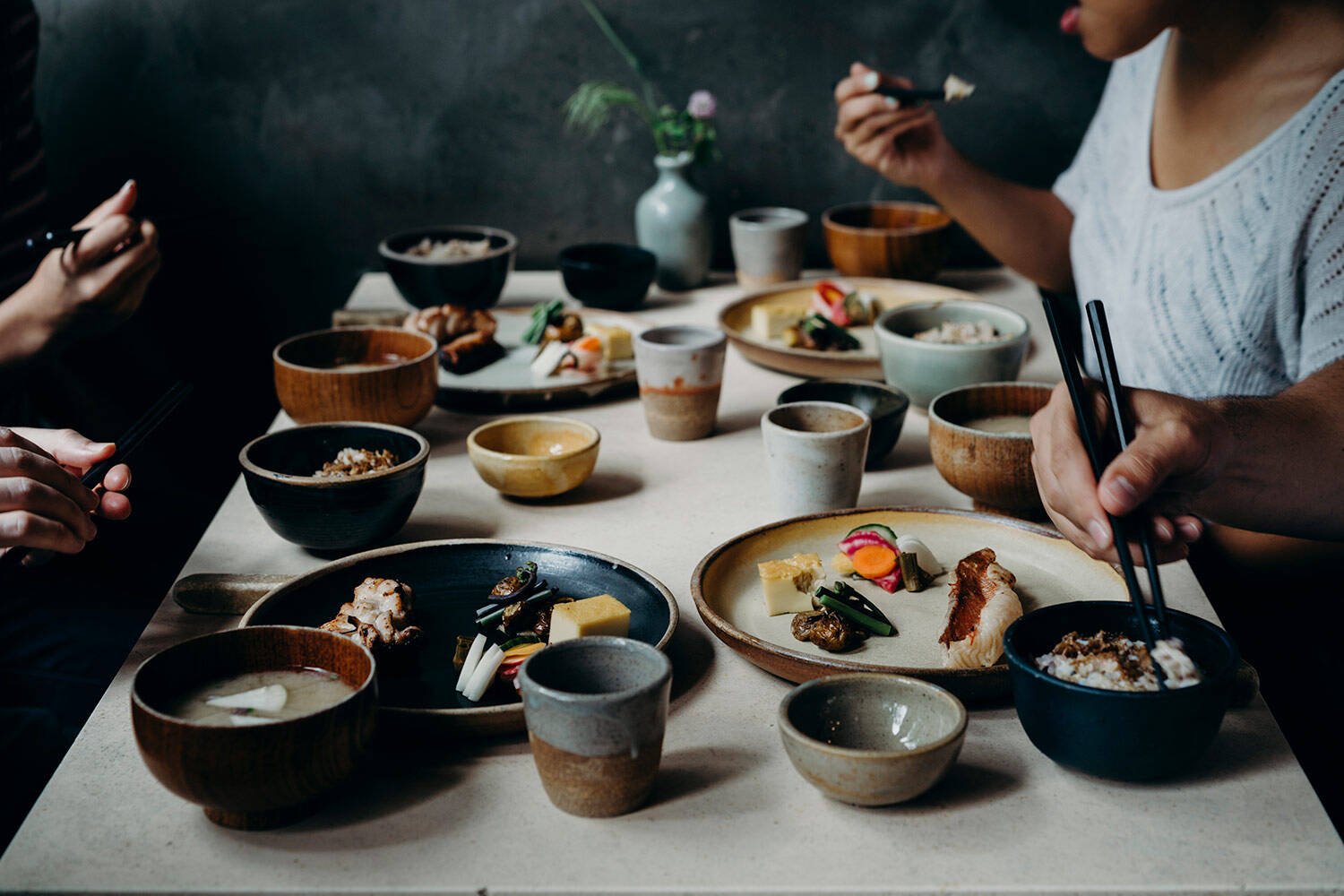
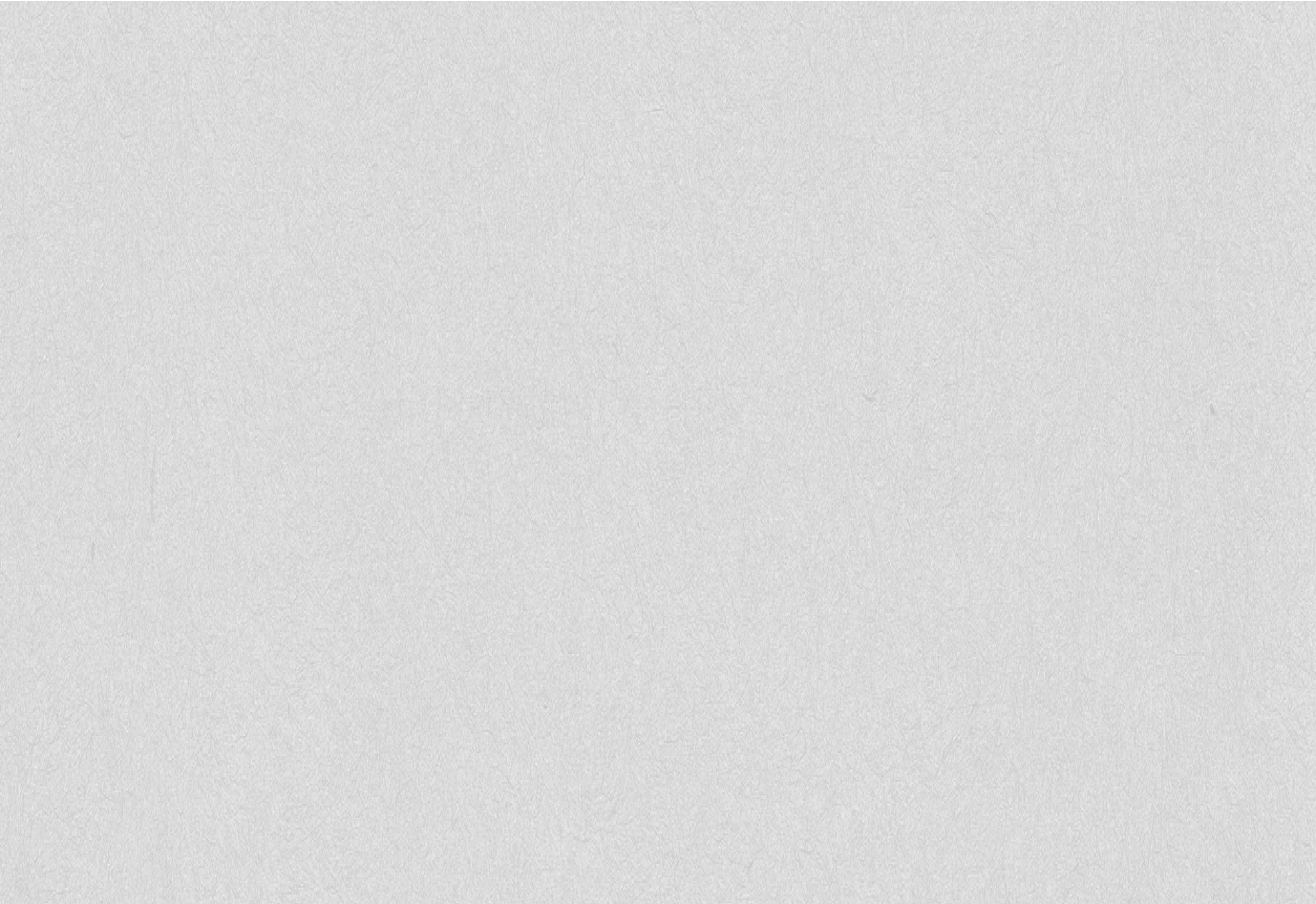
In 2016, Yuji added a store and education center to his restaurants. At Osakana, customers have their pick of the freshest, locally caught fish, as well as access to lessons on how to make sushi, which techniques to use, and how to best use fish in their home kitchen. This is chef Yuji’s way of restoring the lost connection between the city and the ocean that touches it.

F
I
S
H
E
D
U
C
A
T
I
O
N
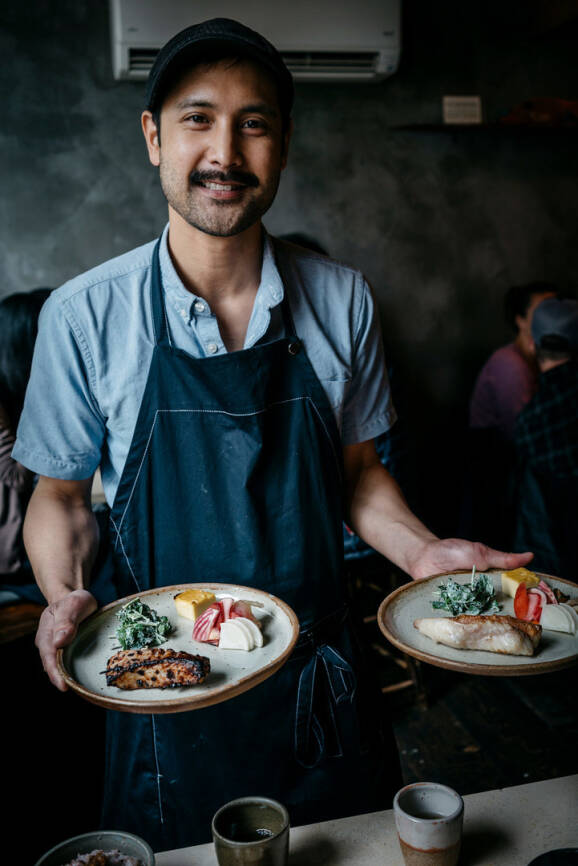
Yuji opened his own restaurant(s) Okonomi and Yuji Ramen in 2014, working only with fish from the Atlantic ocean, like sea bass, mackerel, and flounder, and produce from the local farmer’s markets. At Okonomi he serves a fixed menu according to the tradition of ichiju sansai, a foundational element of Japanese cuisine that literally means ‘one soup and three side dishes.’ Rice and miso soup are such staples.
Ten years ago, owner and chef Yuji worked as a fishmonger in the Japanese fishing industry. He is job was to distribute Japanese fish to high-end sushi restaurants in New York and Boston. It was here he first noticed a paradox in the American approach to fish: The quality and potential of locally caught, American fish was just as high as the fish from Japan, but restaurants kept insisting on the Japanese product that had to travel thousands of miles before landing on the plate. This approach was anathema to the love and care with which the Japanese fishmongers treat their products.
P
A
R
A
D
O
X
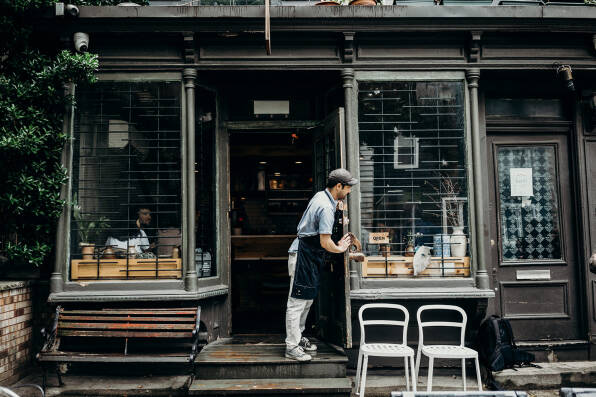


‘The quality and potential of locally caught, American fish is just as high as the fish from Japan, but restaurants kept insisting on the Japanese product that had to travel thousands of miles before landing on the plate.’
The locally caught fish served by chef Yuji is fresher than fresh. Each morning before the sun kisses the streets of New York he gets to work so he can serve the fish - along with rice and miso soup - to Okonomi’s first guests at 9 AM. At 3 PM the twelve seat shop transforms into Yuji Ramen, where what’s left of the day’s catch – like fish heads and bones – is used to make broth for steaming bowls of ramen served from 6 PM to 11 PM.
E
D
U
C
A
T
I
N
G

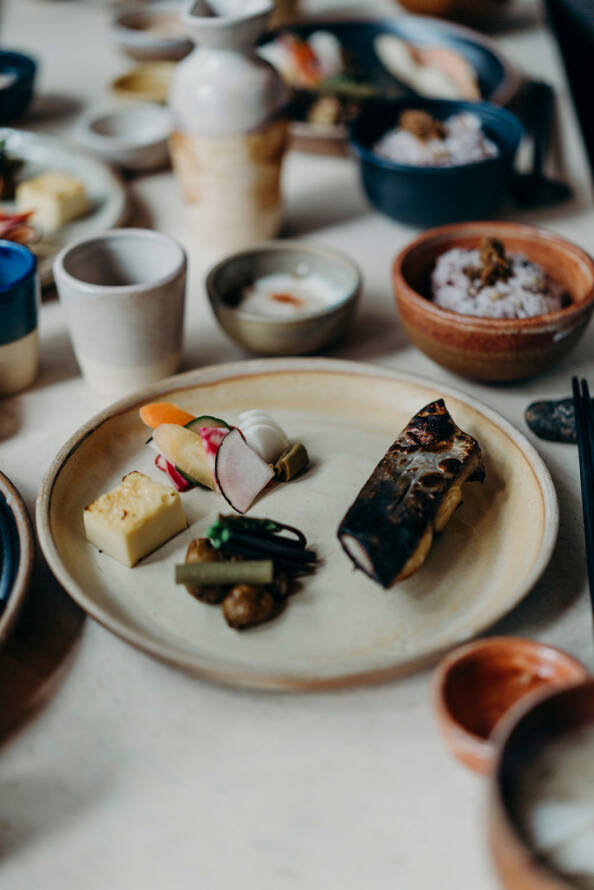
Text, photography, and video: Chantal Arnts
At Okonomi / Yuji Ramen in New York, not a single part of the fish goes to waste. Chef Yuji Haraguchi and his team embrace the ancient Buddhist philosophy of mottainai, the Japanese term which means zero waste, respecting the environment, and showing gratitude.
An ode to the mottainai philosophy
OKONOMI / YUJI RAMEN





Japanese style breakfast
Osakana
290 Graham Ave, Brooklyn, New York
osakanabk.com
Okonomi / Yuji Ramen
150 Ainslie St, Brooklyn, New York
okonomibk.com





卵
Eggs

漬物
Pickled vegetables

ロースト魚
Grilled fish

味噌汁
Miso soup

マルチグレインライス
Wholegrain rice

